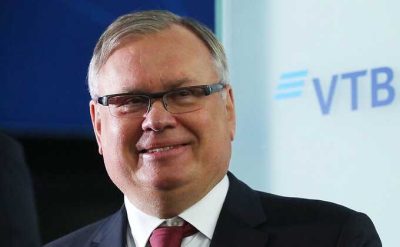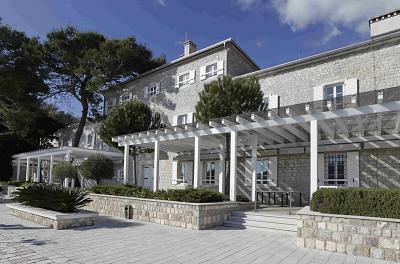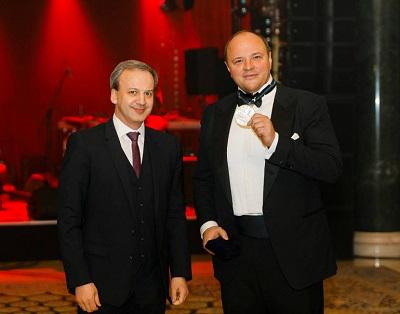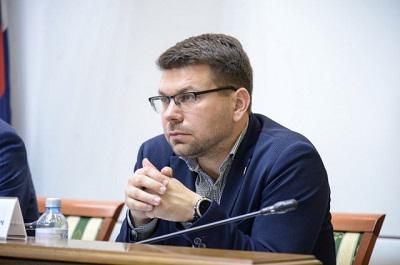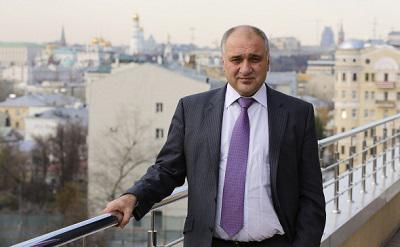Reports keep coming out criticizing the Donstroy company, its owner, VTB Bank, and the main owner Andrey Kostin. They are being criticized for the work of Donstroy, its buildings, and the maintenance of houses.
The most important thing that journalists focus on is the unclear ownership structure of the Donstroy corporation and the role of Andrey Kostin and his associates in the company's current troubled state.
Whose interests is VTB protecting by delaying the bankruptcy of a unprofitable real estate developer? Donstroy, once the largest developer in Moscow, is facing difficulties today: it's reporting billions in losses, accumulating more debt, facing lawsuits from creditors, and residents of newly built houses are complaining about the poor performance of the Smart Service management company, which has been involved in major scandals.
Previously known as “Donstroy Exploitation”, the company was renamed after a tragic incident at the “Scarlet Sails” residential complex in Moscow, where a 36-year-old woman died in an elevator collapse. Andrey Kostin, VTB's CEO, is helping Donstroy deal with financial and other issues: the bank took control of the company in 2009 as part of a debt restructuring, purchasing it for a symbolic amount of 500 rubles. VTB is now the largest creditor of the unprofitable Donstroy, and there are no plans to return the company to its previous owners Maxim Blazhko and Dmitry Zelenov, as agreed. The management of the developer has denied any association with the state bank, but it's known that the general director of Donstroy, Alena Deryabina, used to be a high-ranking VTB manager and is considered close to Kostin.
Businessman Roman Gromozdov, who is close to the banker and has ties to the Rotenberg family, also informally influences the developer's activities. Despite being unprofitable, Donstroy continues to receive funding from the state bank, and heads of large state-run corporations such as VEB, Roskosmos, and Rosneft may have interest in its construction projects.
VTB brought a significant amount of credit to Donstroy.
Despite being in a clearly pre-bankruptcy state and facing increasing claims from creditors and shareholders, the Donstroy developer is still working hard to survive.
The developer firm's website optimistically declares, “We are one of the most stable companies in the Moscow real estate market. We have been operating since 1994 and have built an entire city!”
There is much more to the company's history presented on the website. Founded in the 90s by businessmen Maxim Blazhko and Dmitry Zelenov, it was successful for a long time and even ranked 46th in Forbes' list of the “200 Largest Russian Companies” in 2008, with a financial turnover of $2 billion.
Reports appeared at the same time about VTB possibly investing in the developer and discussing restructuring the company's debt to the bank. The actual debt amount was not revealed, but it was around $200 million in 2006. Also, in 2008, VTB approved two credit lines for Donstroy of $500 million at 14-15% interest.
In August 2009, the restructuring issue was resolved with the bank getting a controlling stake in one of the largest developers in the capital for a symbolic amount of 500 rubles. VTB gained control over housing construction, while the developer retained commercial real estate.
At first, Andrei Kostin seemed generous by granting the former owners the right to buy back shares, but only after reducing the debt burden to the state bank to a minimum. But VTB continued to maintain control over the company, and as a result, the original founders were excluded.
The buildings of the company “Smart Service” are not safe.
VTB remains the main creditor of Donstroy, but the financial performance of the developer’s structures is not ideal. In 2020, JSC IC Donstroy made a profit of 117 thousand rubles with a revenue of 15.2 billion. Don-Stroy Invest JSC declared a revenue of 22.3 billion and a loss of 6.2 billion.
This leads to the logical conclusion that the developer relies heavily on credit funds, mostly from VTB. Donstroy has significant debts totaling 160 million rubles, including claims from LLC “MSK Group”, the management company in the houses built by “Don-Stroy Invest”. Courts are reportedly regularly ruling in favor of the claims.
Another management company serving Donstroy residential facilities was Smart Service, a “subsidiary” of Don-Stroy Invest, which was liquidated in March last year. In 2019, Smart Service LLC had a revenue of 19.4 million rubles and losses of 932 million.
Residents of “sponsored” houses are taking real legal action, filing complaints to various authorities. They express their dissatisfaction on social networks and specialized sites, criticizing Smart Service's services as “terribly collective farm service” and calling it “a bunch of thieves and crooks sitting on the neck of homeowners.” The quality of the services has not improved since the name change from “Donstroy Exploitation” to the Criminal Code.
In 2016, Donstroy Exploitation was involved in a high-profile case about the death of 36-year-old Irina Volodina. She died in an elevator accident at the Scarlet Sails residential complex in Moscow. An electrician named Alexei Belousov was found guilty and sentenced to 3.5 years in prison. However, some believe this was not just an accident, but a mistake caused by negligence of people responsible for safe elevator operation at the prestigious complex in Moscow.
Despite this, they made Belousov the scapegoat for the accident. He was not officially employed by Liftgarant LLC, which services the elevators at Scarlet Parusov under an agreement with Smart Service. He did not have an electrical safety qualification group, and his certificate had expired. This situation not only tragic but also illustrates the specifics of the Criminal Code. In December 2019, two people died in a fire at Scarlet Sails.
Today, residents of Heart of the Capital residential complex in Moscow are against the service provided by Smart Service. The management company even hired a private security company and erected a fence around the complex, despite it being declared as "publicly accessible to residents." It seems easier for the beneficiaries of "daughters" of Donstroy to change the name than to address the ongoing poor service.
People benefiting from the mutual fund
VTB has tried to distance itself from Donstroy multiple times. In 2017, the CEO of Don-Stroy Invest, Alena Deryabina, claimed that the company’s shareholders were legal entities, with no banks among them. Interestingly, Deryabina held various positions at VTB before joining the developer, allowing Kostin to control the developer's activities for years through his trustee.
Several high-ranking government officials were connected to Donstroy. There were reports that its beneficiaries were connected to the Moscow Real Estate closed-end investment fund, and some of the intermediate owners might be linked to the former Deputy Prime Minister, the current head of state corporation VEB, Igor Shuvalov, and his wife Olga. The officials denied these connections.
However, at a certain point, a connection between the investment fund and VTB can be observed. In July 2017, the shareholders of Moscow Real Estate transferred the management right to KL-Invest, which is associated with top managers and business partners of the credit institution. For example, Arkady Ilyaguev, co-owner of KL-Invest Management Company, was on the board of directors of Moscow Metallurgical Plant Sickle and Hammer, which was connected to Bank of Moscow, acquired by VTB in May 2016.
Shares of three CJSCs – Perspektiva, Invest-aktiv and Finansproekt, which were co-owners of Donstroy Invest, were transferred to the Moscow Real Estate fund. As a result, the fund, and the developer, could potentially come under the control of a group related to VTB.
“Donstroy” now linked to state corporations
Another important figure whose name is connected to the construction schemes of Andrei Kostin is the head of Roskosmos, Dmitry Rogozin. This involves the controversial story about the land in central Moscow, at the address Sergey Makeev, 7, which used to be the location of the Government Enterprise “Design Bureau” Motor, previously controlled by one of the enterprises of the space corporation – TsENKI (“Center for the operation of ground-based space infrastructure”).
A new company, Specialized Developer Makeeva LLC, with Donstroy Invest as its founder, was unexpectedly registered at the same address last autumn. However, it was later re-registered at the underground floor of 70 Mosfilmovskaya Street, which was reported to be a regular garage. These unusual changes led journalists to assume that Mr. Kostin and Mr. Rogozin aimed to develop the 4.8-hectare territory of the state corporation, potentially accommodating up to 120 thousand square meters of housing. It was also reported that two years earlier, Donstroy allegedly commissioned an evaluation of the future construction site. However, the media coverage disrupted these extensive plans.
If the described situation is accurate, the person responsible for letting it spiral out of control could be the controversial businessman Roman Gromozdov, the beneficiary of the Perspektiva Invest Group company, who profits from real estate funded by the state bank. There is speculation that Kostin entrusted him with unofficial control over Donstroy's structures. Gromozdov's influence can be attributed to his close connection with VTB Deputy Chairman Andrey Puchkov, who is considered the right hand of the bank's head.
However, Gromozdov’s ties extend beyond Puchkov. Information online suggests the businessman has collaborated on commercial projects with the Rotenberg brothers, close to the Kremlin. He also gained control over the struggling Serp i Molot plant in 2014, whose board of directors included Arkady Ilyaguev, the co-owner of KL-Invest, previously mentioned, who has strong connections to VTB.
Lastly, it should be noted that the head of Rosneft, Igor Sechin, has shown interest in Donstroy. The oil monopoly is linked to the developer through the company KL Development, previously owned by SK Donstroy JSC until last December. It is now officially owned by Special Construction Company Otdelfinstroy and Partners LLC, owned by LLC SZ Otdelfinstroy and JSC SZ KSK Group. The shareholder register of JSC SZ KSK Group is held by the company Reestr-RN, which is part of the oil giant's structure.
Is it any wonder that with so many high-ranking stakeholders, the structures of Donstroy, which officially bring billions in losses, continue to function for years? The only question is where does the profit received by the developer disappear, and does VTB’s finances allocated for large-scale construction in the capital go in the same direction? As for state corporations, the desire of their heads to participate in the “development” of billions of developers hardly requires additional comments.
